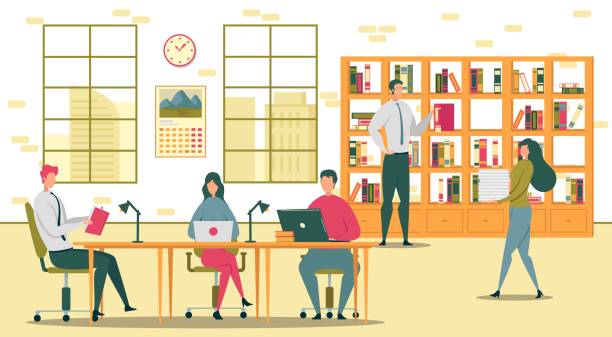
Putting the ‘Public’ Back in Public Libraries
Restructuring the Governance of Public Libraries in Maharashtra
This summary is also available in Marathi.
Maharashtra has a rich history of public libraries run by the government as well as charitable institutions. The public libraries in the state are regulated under the Maharashtra Public Libraries Act, 1967 (“MPLA”). The working and maintenance of the public library system in Maharashtra is overseen by the Directorate of Libraries. The MPLA primarily deals with two types of public libraries: (i) government libraries; and (ii) grant-in-aid libraries. The government libraries are established at the state, divisional, and district level and are under the complete control of the state government. The grant-in-aid libraries are run by private, non-governmental and charitable institutions and given recognition by the Directorate of Libraries in accordance with the criteria laid down in the MPLA.
Due in part to the public library movement as well as the MPLA, Maharashtra, with 12,229 libraries, has the highest number of public libraries in India. However, public libraries in Maharashtra have been afflicted with various issues since 1967. By analysing the present state of the public library system in Maharashtra, we find that the MPLA requires updating to tackle the changing landscape of public libraries in the state.
With this report, we aim to contribute to the limited body of literature documenting the working of the public library system in Maharashtra. We analyse the government reports, state assembly debates, model library bills, and public library legislations enacted by other states to observe that the public libraries in Maharashtra are falling short of their goal of being vibrant community spaces within society.
We discuss the key reasons for the failure of the MPLA to adequately promote establishment and maintenance of public libraries across the state. Additionally, through our consultations with government officials and civil society organisations (CSOs) working in the public library space, we present certain recommendations for the MPLA with an intent of reforming public library legislation in Maharashtra and fostering further debate and deliberation on the importance of the public library system in general. In this report we discuss the salient aspects of the MPLA and other allied issues such as the role of library authorities, levy of membership fees, accessibility for the differently-abled, stocking of books, and providing community spaces, among others.
This report starts by presenting the contextual background and history of the public library system in Maharashtra. It then discusses the establishment of public libraries under the MPLA to suggest that the government must take on greater responsibility of establishing public libraries, especially in areas still underserved by libraries. The next part outlines the key authorities envisaged under the MPLA as well as their roles and responsibilities. It suggests decentralisation of important financial and administrative powers and involvement of Panchayats in the district library associations and councils. The report also discusses the importance of funding for the operational efficiency of public libraries and suggests that the government should revise grants devolved to the states and also consider introducing cess as an alternate form of revenue source for financing public libraries. Relevant here is the role that public library employees play and how funding issues also affect staffing and thereby management and administration of public libraries.
The next part underscores the importance of adopting methods of publicity and marketing by libraries to reach out to their communities. The report emphasises the important role played by public libraries in the development of their communities and also as a community recreational space. It also discusses the need for public libraries to adapt to the rapidly developing information and communication technologies. The next part analyses the barriers faced by persons with disabilities in accessing library services and suggests amendments to the MPLA to foster universal access to knowledge and information. Finally, we conclude that the MPLA must be amended to equip public libraries to play a transformative role in providing educational and cultural development within their communities.


